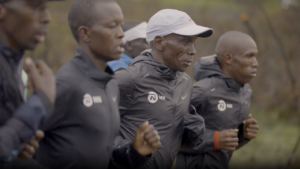Do our children in Nairobi have Life Skills and Values?

Its imperative to acquaint teachers with basic competency skills so that they can be able to roll out the Competency based curriculum.
These are the sentiments of Mr Paul Wanjohi, the treasurer of APBET schools in the country.
His thoughts come at a time when a report revealed that overall, only five percent of the adolescents demonstrated the highest proficiency levels on problem solving.
Nine percent are proficient in self-awareness Six percent express high respect for others Ten percent are proficient in collaboration Similarly, forty-three percent of adolescents can read a grade 4 text. Fifty percent of adolescents can gel on to the internet with ease.
This is according to ALiVE Kenya Report 2022 by Regional Education Learning Initiative on Assessment of Life Skills and Values in East Africa.
The ALiVE assessment was conducted in 20 counties in Kenya, in April 2022 Nairobi being among them. The assessment covered problem solving, self-awareness, collaboration, and respect.
A total of 17,276 adolescents aged 13-17 years from 14,197 households were assessed The findings showed that most adolescents have started their journey to acquisition of these competencies.
For instance, while adolescents can identify a problem, they mostly identify only a single solution to a problem, even when they are asked for several.
This was a one-on-one assessment administered orally in the local language.
To assess collaboration, the adolescents worked in groups of four, some in separate gender (boys, girls) and some in mixed- gender groups.
The assessment combined the use of scenarios with a scoring rubric to measure these social-emotional skills.
Increasingly, life skills and values have been recognized as a fundamental part of education. Employers now demand them during recruitment, and that competences like problem solving and critical thinking also help to improve performance in academic subjects.
Realizing this in 2016. Kenya rolled out a Competency Based Curriculum (CBC) to respond to concerns that the previous system was not equipping graduates with the desired competencies for the new job market.
While this is happening, many teachers and parents may not be aware of the worth of these competences, and there is hardly any evidence on whether our children are acquiring these competences or not, from home and at school.
David Alelah Program Officer ALiVE at ZIZI Afrique Foundation adds that “Life Skills are as important as academic subjects, therefore, nurturing Life Skills should be everyone’s responsibility.
But this is not possible unless all of us know how important these competencies are It’s also important for everyone to build or nurture them as you cannot nurture in others what you do not have” He further states.
This report is a product of collaborative work, a contextualized tool developed via a learning- through-doing approach. We call on all educational actors, parents, and teachers to join us in our pursuit of nurturing Life Skills and Values.”





